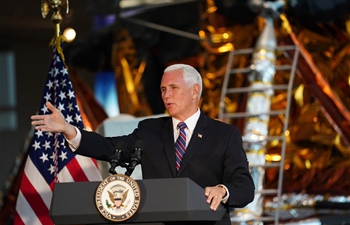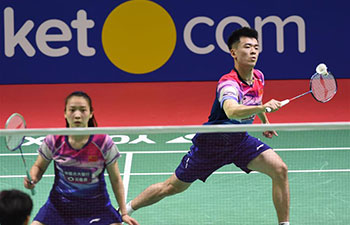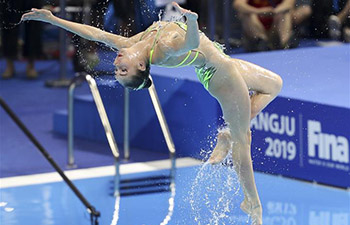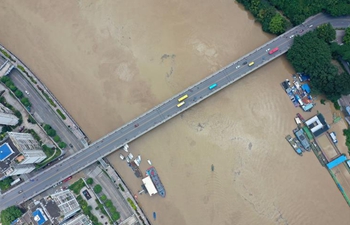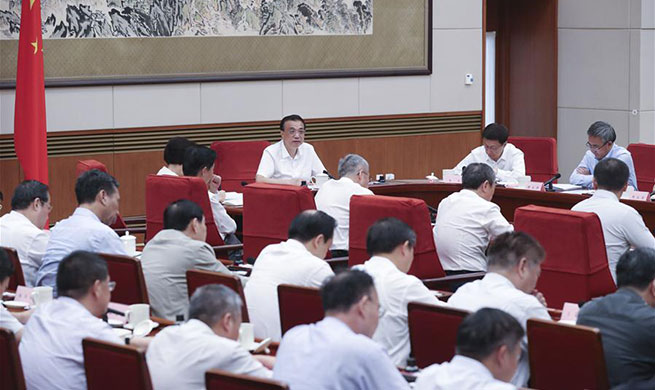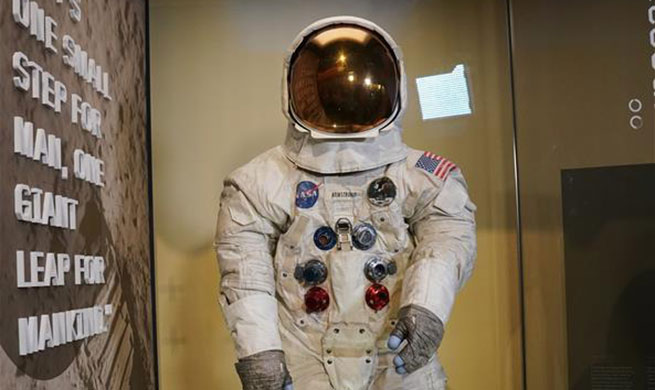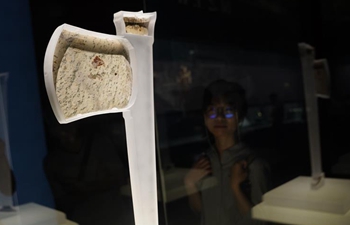By Sportswriter Ma Xiangfei
BEIJING, July 17 (Xinhua) -- The World Anti-Doping Agency has made considerable progress in the past six years despite the public attention given to the Russian doping crisis, world anti-doping head Craig Reedie said.
The outgoing WADA president will finish his two terms at the end of this year with Polish sports minister Witold Banka set to replace him as the next president at WADA's fifth World Conference on Doping in Sport in Katowice, Poland in November.
In retrospect, the Briton said he saw several improvements in the organization which, set up in 1999, is responsible for coordinating the global anti-doping movement between governments and sports organizations.
"With the exception of all of the huge amount of work we had to do with Russia, we really have moved things forward," said Reedie on the sidelines of the International Anti-doping Symposium hosted by China Anti-Doping Agency here on July 16 to 17.
"I think the biggest change and the one I'm most proud of is the new compliance issues we have. It used to be countries having to be compliant under the rules. Now we want them to be compliant under practice as well, so that the actual delivery of anti-doping services is much better than it was before," he said.
Several hundred national or regional anti-doping organizations and sport organizations have signed up to comply with WADA's World Anti-Doping Code. Along with the Code, WADA also worked out six international standards of practice for signatories.
The standards involve areas including prohibited lists, labs and investigations. Reedie said he was happy to see that WADA's authorized labs have also improved.
"We worked on improving our laboratory standards. This is one of the areas that is absolutely essential to good anti-doping [efforts]. You have to have a laboratory that works to the very highest standard and that can be complicated to deliver. But I think we've gone a long way in doing that."
However, he added that testing alone has been far from enough to catch drug cheats, and said WADA has started to shift more attention to information and investigation and cooperation with law enforcement departments several years ago.
A recent global crackdown named Operation Viribus saw over 200 people arrested, and was carried out by WADA investigators led by Gunter Younger.
Younger, former head of the Cybercrime Division at the Bavarian Landeskriminalamt (BLKA) in Germany, now leads the 11-member Intelligence and Investigations department in WADA.
"They run the speak-up program, which is a worldwide opportunity for athletes to give us information. We provided law enforcement with some of the data that we had on who and where performance drugs were being created and developed illegally," he said. "And I think it's an ideal example of international cooperation."
Reedie admitted that what WADA did has raised up the level of expectations and the organization needs more resources to support these efforts. Last year WADA's Foundation Board agreed on a budget increase, approving eight percent of increases for each of the next four years from 2019-22, which will bring the budget from roughly 30 million U.S. dollars to 40-45 million.
"I'm proud to say that some of our stakeholders have begun to understand that we cannot do this without proper resources. And governments in particular have agreed increases in the contributions that they made.
"So given that and hopefully we don't have another crisis like Russia. It means that we can apply that money pretty well on the anti-doping issues," he said.
Reedie estimated that nearly seven million dollars were spent on the Russia issue to analyze the data and samples from the Moscow laboratory among other investigations they did, and added that "one major sporting country had been breaking the rules, we had to do something about it. We've also spent a great deal of time rebuilding the Russian Anti-Doping Agency. That took a lot of time and effort, but I give them full marks for all of their efforts."
WADA reinstated the Russian Anti-Doping Agency in September of last year under conditions and Reedie hoped the issue could be put to an end "before the 7th of November, so that my successor can have an easy time."
Talking about his successor who is set to take over the post at the November 5-7 World Conference, Reedie expressed his confidence in 34-year-old Banka.
"He has been a very good sports minister in Poland. Poland is quite a significant sporting country, and he's been very good in his work with the Polish anti-doping organizations. I'm certain he will get one hundred percent support from the whole of WADA, certainly from me, and and I wish him every success," said Reedie.




